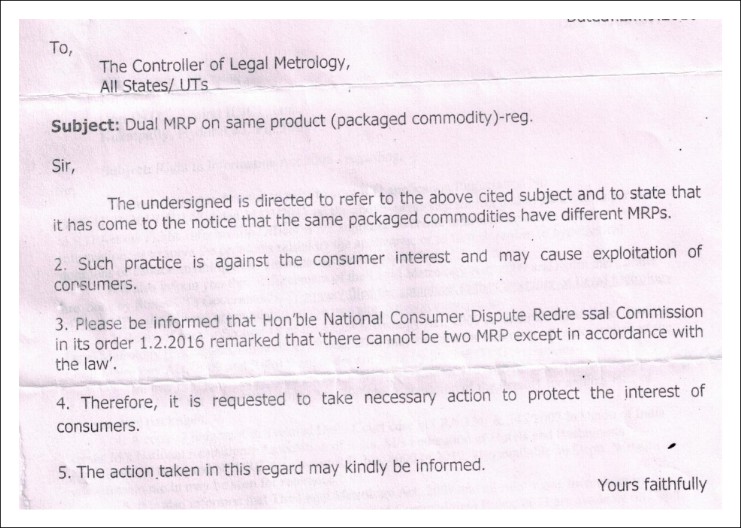[orc]After months of dilly-dallying, the government has now amended the rules effectively banning the practice of ‘Dual MRP’. The new rules will be effective from 01st January 2018.
The issue of ‘Dual MRP’ has been in the limelight for the last one year with more & more people complaining about such practices. The National Consumer Disputes Redressal Commission (NCDRC) had also ruled that there cannot be two MRPs, except in accordance with the law. All this while, the law was silent on the issue of dual MRP. Recently, on 23rd June 2017, the government has amended the Legal Metrology (Packaged Commodities) Rules, 2011 effectively banning dual MRP. These rules will become effective from 1st January, 2018. Factly had earlier reported that the only way to prohibit such practices is amending the rules.
The relevant law & rules
All packaged commodities like bottled water are covered by sec 2(l) of the Legal Metrology Act, 2009. Further, every packaged commodity has to comply with the provisions of Rule 6 of the Legal Metrology (Packaged Commodities) Rules, 2011. As per Rule 6 of these Rules, the following mandatory information has to be declared on the package for the benefit of the consumer.
- Name & address of the Manufacturer / Packer / Importer.
- Common or generic name of the commodity contained in the package.
- Net quantity of the commodity contained in the package or where commodity is packed or sold by the number, the number of commodity contained in the package shall be mentioned.
- Month and year of manufacturing / pre-packing / importing.
- Retail sales price of the package (as maximum retail price Rs. ___, inclusive of all taxes)
- Dimensions of the commodity where the sizes of the commodity contained in the package is relevant”.
What is there in the current amendment?
The government has now amended these rules by adding the following in rule 18. This clause says, “Unless otherwise specifically provided under any other law, no manufacturer or packer or importer shall declare different maximum retail prices on an identical pre-packaged commodity by adopting restrictive trade practices or unfair trade practices as defined under clause (c) of sub-section (1) of section 2 of the Consumer Protection Act, 1986 (68 of 1986)”.

This amendment would be effective from 01st January, 2018. It is interesting to note that Government of India on multiple occasions mentioned in the Lok Sabha that state governments are competent for taking action in these cases and that an advisory has been sent to the state governments regarding the issue. An advisory on the issue was also sent to various states in September 2016. As the government realized, the only way out was to amend the rules to avoid the ambiguity.

Whether the manufacturers & packers who are used to such ‘dual MRP’ practices will find new ways to overcome this restriction remains to be seen. Government should be vigilant about possible subversion of the law by manufacturers & packers who might come up with different quantity and type of packaging for some specific places. Government should also publicize this rule in big way. The state Legal Metrology departments should have a centralized complaint mechanism for reporting any violation.
What else is part of the amendments?
The amendment is not just restricted to banning dual MRP, but covers the following issues.
- Goods displayed by the seller on any e-commerce platform should contain things like name & address of the manufacturer, packer and importer, name of the commodity, net content, retail sale price, grievance redressal system, etc. The only exemption from the declaration is for disclosure the month and year of manufacturing/packing.
- Size of letters and numerals for making declaration is increased, for easy readability. This is further to the amendments made in 2015. The declarations will now to have to follow specifications in the following table.

- Even medical devices have to comply with these rules including mandatory declarations like MRP, dates, quantity etc.
- The definition of ‘Institutional Consumer’ has been modified to prevent misuse of the rule where such consumers were indulging in trading. The definition has now been changed to institutions that buy packaged commodities for internal use and not for commercial or trade purposes.


